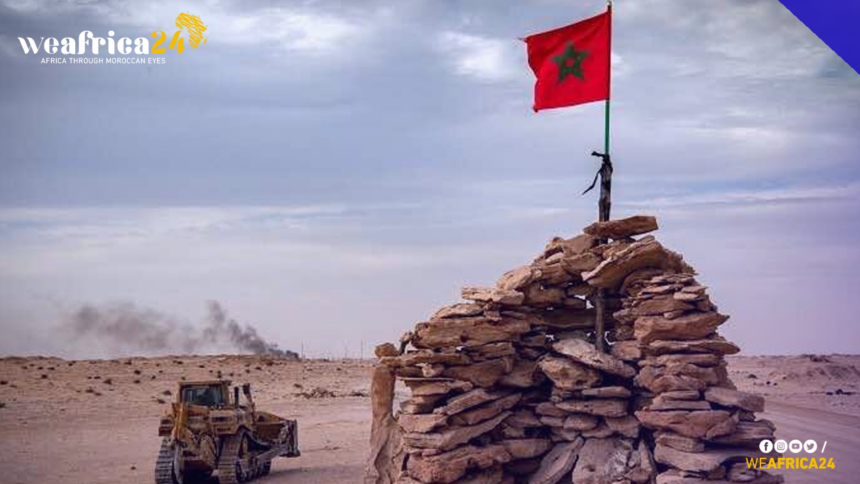In front of the Fourth Committee of the United Nations General Assembly, the Moroccan delegation revealed what it described as Algeria’s pathological obsession with theMoroccan Sahara issue, suggesting that Algeria is a major party in this regional conflict.
In response to misleading claims by the Algerian representative regarding human rights in the Moroccan Sahara and her biased references to including human rights monitoring mechanisms within the MINURSO mandate during the general discussion on peacekeeping operations, Mona Elouzani, a counselor at the Permanent Mission of Morocco to the United Nations, highlighted that Algeria’s insistence on bringing up the Western Sahara issue as a focal point among all the topics discussed within this committee demonstrates that Algeria is indeed a principal party in this contrived dispute.
The diplomat expressed regret that Algeria’s ignorance about peacekeeping operations, which can only be rivaled by its deep-seated animosity towards Morocco, disrupts a discussion of paramount importance for member states, especially for countries that contribute forces and police personnel to peacekeeping missions. She noted that it is regrettable, given that Algeria falls into neither of these categories.
Elouzani stated that Algeria has no involvement whatsoever in United Nations peacekeeping operations. She emphasized, “No troops are supplied, no blue helmets. There is no contribution beyond a couple of experts in a mission,” adding that “what Algeria lacks is not personnel or resources, but rather the political will and confidence in the role of the United Nations in peace and security.”
The Moroccan diplomat called on Algeria to refrain from interfering in discussions regarding an issue it neither contributes to nor understands, highlighting that peacekeeping missions are defined by the Security Council.
She pointed out that, in the specific case of MINURSO, the Security Council reaffirmed its position, along with the international community, earlier this week through Resolution 2703. This resolution not only refrained from calling for any mechanisms to monitor human rights but also welcomed Morocco’s measures and initiatives to promote and protect human rights in its southern provinces and its cooperation with the special procedures of the United Nations Human Rights Council.
The diplomat underscored that the human rights situation in the Moroccan Sahara is far better than that in Algeria and its Tindouf camps, challenging the Algerian delegation to answer the following question: “If your country is genuinely concerned about promoting and protecting human rights, why do you not do anything substantial to improve the situation in the Tindouf camps, which your country hosts, in response to Security Council resolutions? Moreover, why does Algeria, in stark contrast, continue to violate the basic human rights of the population held against their will in these camps, including sexual abuses and rape by the leaders of the separatist group, including Ibrahim Ghali? Why does its army carry out extrajudicial executions outside the scope of the judiciary, using arbitrary procedures against these individuals? Why does it allow for the arrest and torture of those who defect from the corrupt leadership of the Polisario in the camps?”
She continued to question why Algeria insists on refusing to register the population of the Tindouf camps, in violation of Security Council resolutions and provisions of international humanitarian law. Furthermore, why does it allow the Polisario armed group to recruit children from among the camp residents? Why does it tolerate violations, sexual assaults, and rape committed by the leaders of the separatist group against women and girls in the camps?
Elouzani highlighted that the most alarming aspect is Algeria’s delegation, which is responsible for such significant human rights violations, would even dare to discuss the matter within the committee.
She concluded by stating that the only real and practical solution to the Western Sahara issue is a political one based on consensus, namely the Moroccan Autonomy Initiative. This initiative has consistently gained the recognition and support of the Security Council, most recently in Resolution 2703, and has been praised for its credibility.







